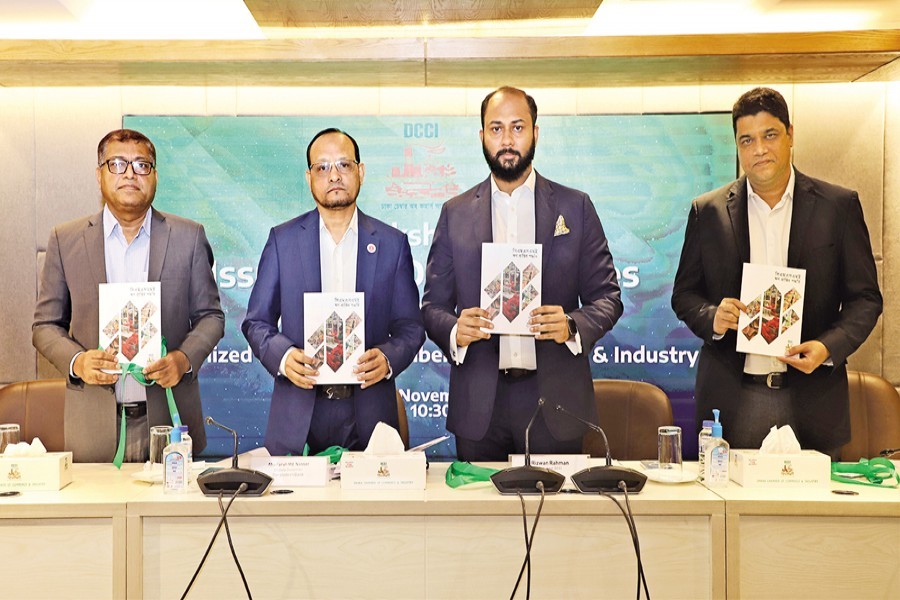Experts at a workshop on Saturday called for proper utilisation of the 'Credit Guarantee Scheme' to encourage lending to potential cottage, micro, small, and medium enterprises (CMSMEs).
Dubbing the CMSMEs the 'engine of the country's economy', they urged banks and financial institutions to disburse more funds to marginal entrepreneurs so that they can bounce back from the pandemic shock.

Dhaka Chamber of Commerce & Industry (DCCI) organised the workshop titled 'Issues and Opportunities of CMSME Lending' at its auditorium in the city, said a DCCI press release.
Deputy Governor of Bangladesh Bank (BB) Abu Farah Md Nasser addressed the event as the chief guest while Director for SME and Special Programmes Department (SMESPD) of BB Md Jaker Hossain and General Manager of SME Foundation Md Nazeem Satter also spoke at the programme presided over by DCCI President Rizwan Rahman.
In his speech, Deputy Governor of Bangladesh Bank Md Nasser said the central bank has created a fund of Tk 20 billion for credit guarantee scheme with a view to giving collateral-free loan, especially to the CMSMEs.
But out of that amount, only Tk 1.92 billion has been disbursed till date, which is disappointing, he said, adding that proper utilisation of this scheme is a must for the revival of CMSMEs.
He suggested that banks should establish more sub-branches across the country rather than only focusing on agent banking for a better reach to CMSMEs at the grassroots level.
About interest rates, the deputy governor said, "We are going through a tough time due to the Ukraine-Russia war. If we try to control interest rate forcibly at this time, it may lead to recession."
Considering the global scenario, manufacturing and service sectors should get priority in getting loan right at this moment in order to check inflation, he also said.
DCCI President Rizwan Rahman said the CMSME sector plays important roles in making the country's economy grow, but due to lack of policy support and financial assistance, the sector couldn't be utilised fully.
Mentioning that commercial banks and financial institutions sometimes feel risky to give loans to CMSMEs, he said, "Till 2022, out of Tk 200 billion stimulus packages for SMEs, about 73.77 per cent or Tk 147.46 billion has been disbursed but most of it went to medium enterprises."
Mr Rahman urged the regulators to give CMSMEs more access to information and communication technology as well as financial assistance so that they can attain the ability of manufacturing.
Ensuring access to information and proper financing can help the SMEs gain competitiveness in supply chain process, he added.
General Manager of SME Foundation Md Nazeem Satter said only banks are not sufficient to ensure loans for over 7.8 million CMSMEs in the country.
He suggested capacity building of MFIs, NGO Foundation, Karmasangsthan Bank, BSCIC, and SME Foundation to increase lending to those small businesses.
Central bank's SMESPD Director Md Jaker Hossain said the CMSME sector's contribution to GDP is about 25 per cent now, and in 2024, it will be around 32 per cent, while by the year 2027, it will reach 40 per cent.
He said Bangladesh Bank has a plan to disburse 50 per cent of total loans to CMSMEs while at least 15 per cent of the funds will go to women CMSME entrepreneurs.
At the programme, BB deputy governor also unveiled a DCCI booklet on 'Easy Access to CMSME Financing'.


